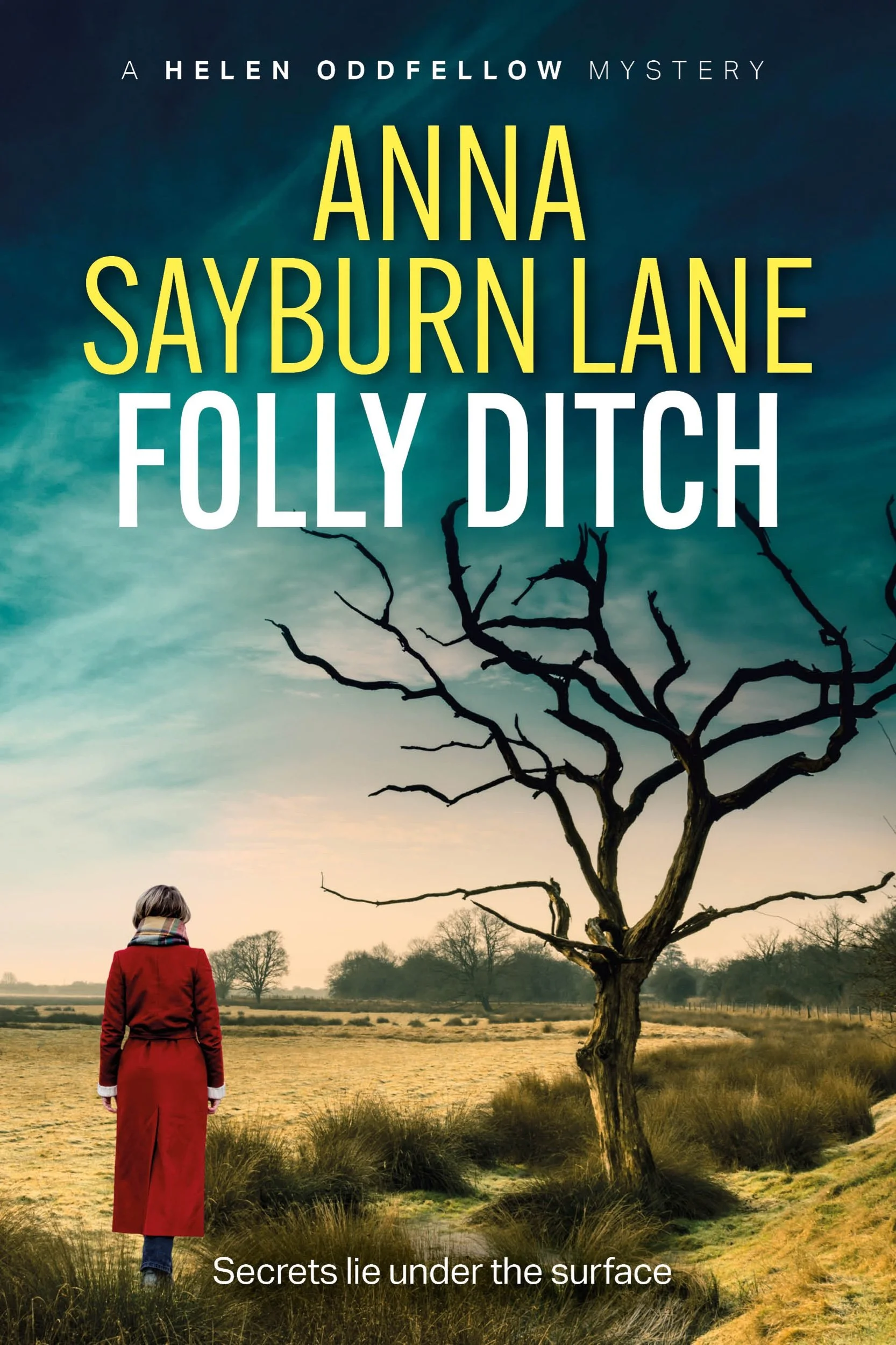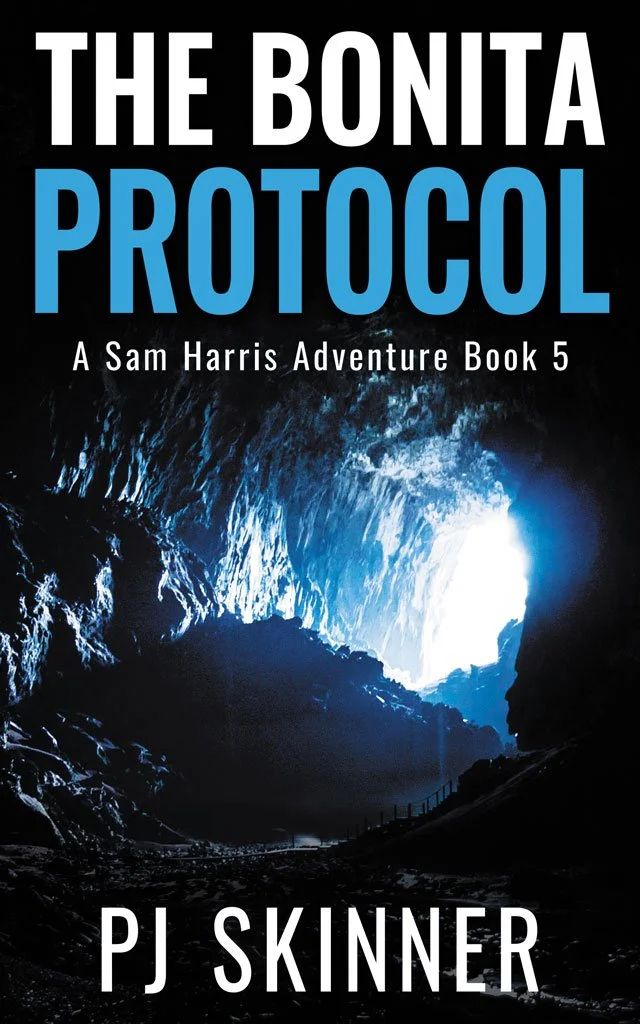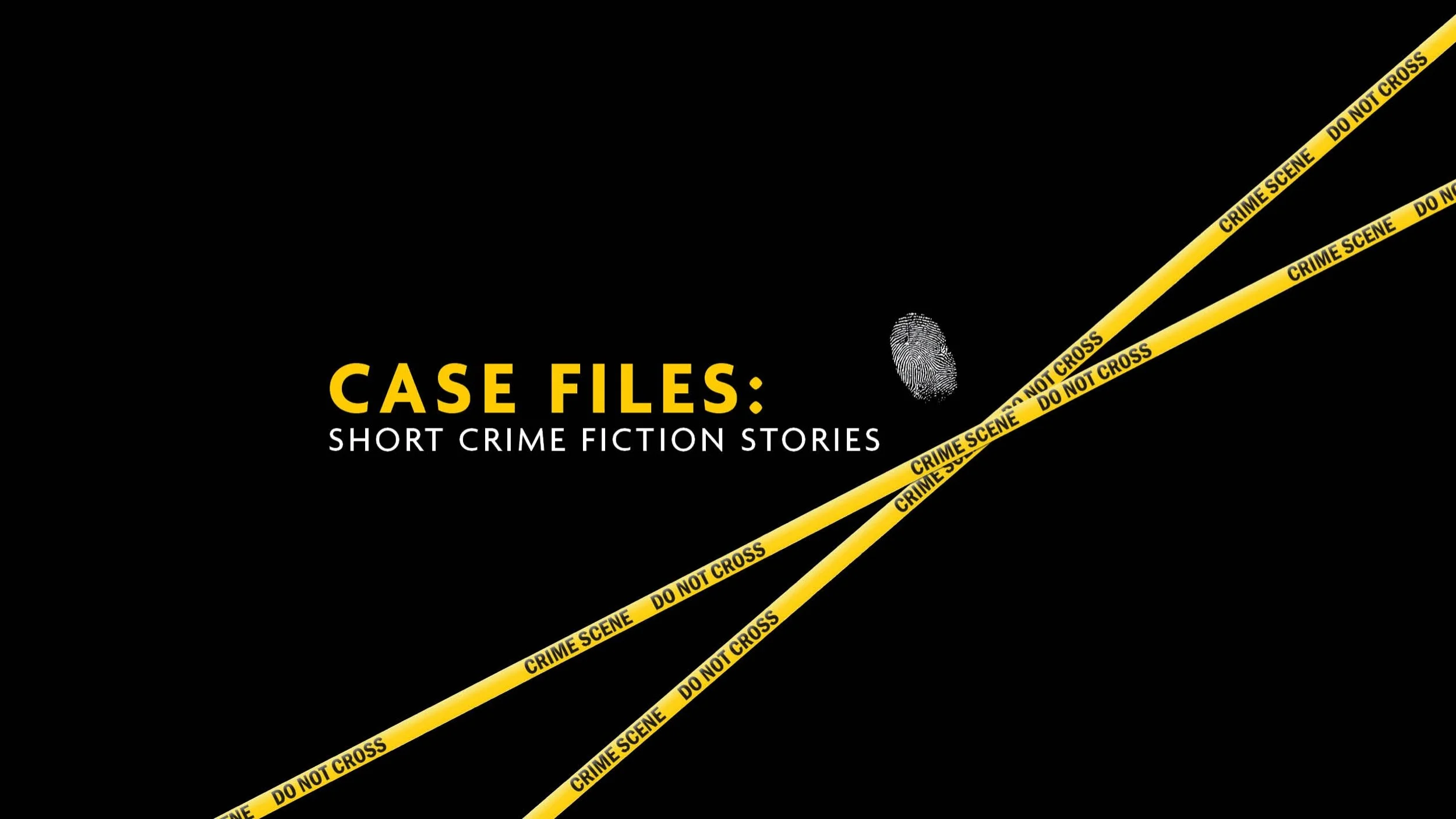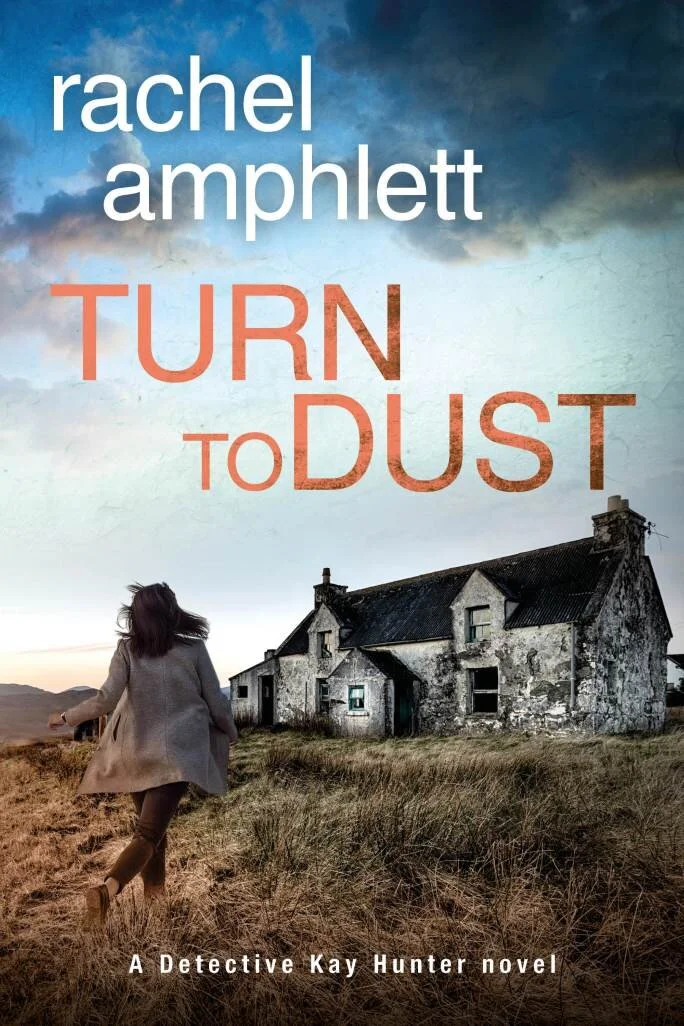Folly Ditch by Anna Sayburn Lane
A Dickensian murder mystery. A brutal modern-day gang. Can Helen Oddfellow outwit an old enemy – or will she be his next victim?
When literary researcher Helen Oddfellow finds an old newspaper cutting in an antiquarian bookshop, she uncovers a mystery dating back 200 years. Her quest to find the real woman behind one of Charles Dickens’ best-loved characters takes an unexpected turn, when the bookshop owner goes missing.
Helen befriends his distraught teenage daughter as they try to find the missing man. But the marshes of north Kent are home to a criminal gang more brutal than anything Dickens imagined. Murky money, royal connections and desperate people link the past with the present. But it’s the unexpected return of an old enemy that puts Helen herself in mortal peril.
FOLLY DITCH is latest in the series of mysteries featuring literary sleuth and London tour guide Helen Oddfellow.
About the author
Anna Sayburn Lane is a writer, editor and journalist. She lives on the Kent coast, at Deal.
Anna has published award-winning short stories and was picked as a Crime in the Spotlight new author at the 2019 Bloody Scotland International Crime Writing Festival. Her 2018 debut novel Unlawful Things was shortlisted for the Virago New Crime Writer award.
Contact hello@annasayburnlane.com
Find out more at www.annasayburnlane.com
As part of the tour I have the pleasure to be able to share with you an extract of the book.
Paxton raised his binoculars and peered into the darkness of the English Channel. His boots dug into the scrappy turf, close to the edge of the cliff. The wind flung handfuls of sleet at his face. Far below, huge waves churned the shingle of the beach.
It was a rough night for a crossing.
He could pick out a few vessels at sea. Two small fishing boats bumped along close to the shore. A massive container ship, festooned with lights like a left-over Christmas tree, anchored up inside the Goodwin Sands to ride out the storm. A buoy, flashing red, warned of the hidden sandbanks beneath. A haze of sickly orange hung over the horizon: the lights of Calais reflected off the lowering clouds.
The bastard weather. He couldn’t afford for it to be late.
At the bottom of the cliff blazed the port of Dover, gantries and docks floodlit. Lorries lined up in the big car park, snaking around the site. Men in high-vis jackets with clipboards stood stoic in the filthy sleet. It was all fixed, he’d been told. So long as they arrived before the shift change at nine.
And then he could see it, emerging from the darkness. The first ferry of the day steamed towards the port. Paxton checked his watch. It docked in fifteen minutes. Then maybe another half hour for the lorries to disembark. Hardly any private cars; early January wasn’t the time for a jaunt to France and the hassle of travelling these days put most people off. Except for the illegals in their ragged inflatables, and there wouldn’t be any of those today. Anyone stupid enough to try would be dead before they got out of French waters. There was something to be said for a storm.
Paxton stashed the binoculars away and stuck his hands deep in his pockets. He’d spent hours up here over the winter, monitoring the hordes of migrants with a few like-minded men. Patriots. People didn’t want to hear about it, but you ask the fishermen. Or look at the piles of inflatables stacked up at Dover and Folkestone. The Kent coast had repelled invaders since Roman times, but some invasions took place by stealth.
He watched the ferry power through the waves until it reached the calm waters inside the harbour wall. Time to go. He trudged back through the freezing rain to the minibus and checked his phone. A message, from a number he didn’t recognise: ‘Docking now.’ And a registration, Dutch by the look of it.
He drove along the winding roads past the mighty fortifica- tionof Dover Castle, stone walls standing like iron. The lay-by was a good one, by the Whitfield business park but away from CCTV cameras, screened by scrubby trees and bushes. Lorries used to wait up here for the ferry, but since Brexit most of the freight was routed along the M20. There were still signs, though. Bottles of urine littered the hedges, fast-food wrappers tangled in the branches of the trees. People had no pride. Kent: toilet of England. What was wrong with them all?
He waited. Paxton was good at waiting. He turned off the engine. Couldn’t afford to waste petrol, even if the cab was freezing. An hour later, with the sky lightening as far as it was going to, a truck turned off the roundabout. A big artic refrigerated unit. He checked the registration number. That was the one.
The driver jumped out, baseball cap low over his eyes, and checked for cameras. He ran to the back of the truck and cut through the customs seal, shifted the bolts, and flung the doors open.
Paxton heard shouting in some language he didn’t know, German or Dutch or whatever. A rabble of people climbed down. They looked in a bad way. Three men first, heaving tatty nylon sports bags and rucksacks stuffed with God knows what. Paxton frowned. They’d been told to bring the bare minimum. Their faces were weathered, heavily lined, and they wore cheap- looking leather jackets and jeans. One took out a tin of tobacco and started rolling a cigarette.
‘No,’ shouted the driver, shooing them towards Paxton. ‘You go now.’
Paxton stepped out and opened the back of the minibus.
‘Come on, then. This way, ladies and gents. I’m Gary. I’m taking you to the quarantine centre, all right?’
More were climbing down from the lorry, scrambling past rows of polystyrene boxes. A couple of middle-aged women, heads covered with scarves, bundled up in anoraks. Two more white men, younger, with ratty little moustaches. A tall black guy, skinny, his jeans almost falling off him. He wore only a sweatshirt and was shivering hard.
A girl with long dyed-blonde hair, helping down a woman with a massive wheeled suitcase. For Christ’s sake. He took another look at the girl, her face pale as sour milk. Young. Very young. Who the hell decided to bring her?‘This way, everyone. Got your documents?’ He held out his hand.
‘You don’t need our documents.’ The man with the cigarette. ‘We need them.’ His accent was strong, eastern European. Albanian, if Paxton had to guess.
Paxton sighed. ‘It’s just for the checks. Until you’ve tested negative for Covid. Then you get them back, OK?’
The man looked mutinous. Paxton held his gaze.
The lorry driver slammed the back doors shut and drove off, taking the roundabout at speed. They were on their own.
The man dropped his gaze, spat on the ground, and handed over an Albanian passport. Urtash Prenga. Paxton nodded and put it into a folder. He’d remember that one. This was the tricky bit. Get their documents and deliver them to the farm. Whatever happened after that wasn’t his business.
‘Can you help me?’ asked the girl. She was trying, without success, to heave the big suitcase into the back.
‘Shouldn’t have brought so much shit with you,’ he muttered. But he grabbed the handle and heaved it up. It was heavier than he’d expected. He needed to get back to the gym.
‘Thank you, Gary,’ she said with a wide smile.
‘You speak English?’ he said.
‘I need to get better. I will go to school,’ she said.
He sighed. That wasn’t going to happen. She really was young.
He scowled at the older woman with her, who scowled back. Silly cow, what had she brought a kid for?
‘I am Aisha. This is Elira, my old sister.’
‘Right. Come on, passports or ID cards, then get in.’ He handed the girl a carrier bag containing a couple of bottles of water and a packet of biscuits. God knows when the poor sods had last eaten. ‘Here you go. Make yourselves comfortable. Won’t be long.’
Urtash Prenga was still looking suspicious, but his companions were lighting up evil-smelling cigarettes, showing terrible brown teeth as they laughed, happy that they had finally arrived in Britain. They wouldn’t give him any bother.
Paxton climbed in and wound down the window, ignoring the sleet. He’d quit smoking when he got out two months back. Now the smell of it made him think of confinement, of men lying around on bunks with nothing to do and nowhere to go, simmering resentments building to ignition point.
He gunned the engine, heading northwest on to the single- lane tracks that led into the depths of the Kent countryside. The sooner they were there, the sooner this lot would be someone else’s problem. It was like back-country Afghan out here. No- one kept anywhere near the speed limit. So long as he avoided the motorways, there was no chance of being flagged down by an over-zealous copper.
He felt excitement course through him, grinned as the van careered round tight corners hugged by high hedges. He took the Roman Road that led to Canterbury, then swerved around the city on drovers’ roads, pilgrim paths. Up into the flatlands of north Kent, past Faversham, Sittingbourne. He ignored the shouts of protest coming from the back.
Delivery driver. That’s what he’d told his parole officer. They hadn’t bothered to check it out; everyone was a delivery driver these days.








